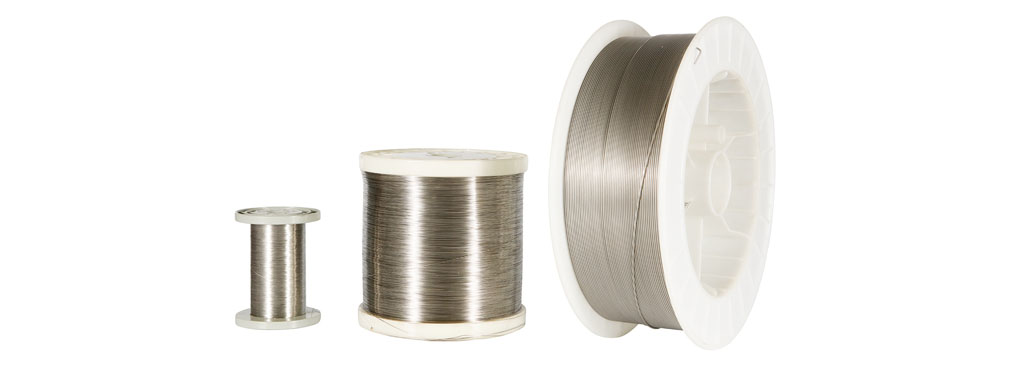1J87 is a kind of nickel-iron-Niobium soft magnetic alloy which has extremely high initial permeability and high resistance and high hardness. It stands as a benchmark product for quality-focused soft magnetic materials manufacturers. Similar alloy's names in different standards:
Beiye designation | China Standard designation | America designation |
1J87 |

Sensors
Transformers
Amplifiers
Relays
Loudspeakers
Earth leakage circuit breakers
Shielding
C | ≤0.03 | Ni | 79.5 |
Si | ≤0.30 | Mo | 2.0 |
| Mn | 0.45 | Nb | 7.0 |
Fe | bal. |
| DC magnetic properties | |
Thickness | 0.35-1.0mm (0.014-0.04in) |
Saturation Induction | 0.50T (5 000Gs) |
Coercive force | ≤1.40A/m (0.0175Oe) |
| Initial permeability (at 0.08A/m) | ≥43.75mH/m(35 000Gs/Oe) |
| Maximun permeability | ≥206.25mH/m(165 000Gs/Oe) |
* Typical values measured on rings sample after annealed at 1150°C in pure & dry Hydrogen and then tempered.
Soft | Hard | |
Hardness | ≥190Hv |
* Typical values for material tested in accordance with GB/T 4340.3, GB/T 228, GB/T 22315.
| Density | 8.7 g/cm3 (0.31lb/in3) |
Resistivity | ≥75 µΩ•cm |
In-process annealing: To relieve all strains and restore the alloy to a soft condition suitable for further cold rolling or drawing, forming, bending or similar operations, anneal at 1020~1080℃ for not more than 1 hour. Since the high nickel, high permeability alloys readily absorb carbon, sulfur, oxygen and other contaminants from combustion furnace gasses, in-process annealing should be conducted in dissociated ammonia, hydrogen, vacuum or inert gas atmospheres.
Final annealing: For maximum softness and optimum magnetic electrical properties, the cold deformed 1J87 alloy should be annealed in an oxygen-free, dry hydrogen atmosphere with a dew point below -40℃ at 1150℃ for 3~5 hours, cooled at 200℃ per hour.
Oil, grease, lacquer and all other contaminants must be removed before annealing. The individual parts should be separated by an inert insulating powder such as magnesium and aluminum oxide during hydrogen annealing.
Vacuum heat treatment could be used, but generally it results in a sacrifice in magnetic properties compared to heat treating in a dry hydrogen atmosphere.
Contact Beiye for your precision alloy and supply solutions regarding 1J87.

